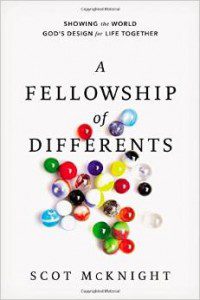 Allow me to use three Greek terms to describe how church is not only understand but practiced today. If you observe the practice you can describe the understanding behind it. Each is an expectation that can be met by participating in that expectation. I offer today some thoughts about three models of church at work in our minds and our practices, and send you to A Fellowship of Differents for an exposition of the third sense.
Allow me to use three Greek terms to describe how church is not only understand but practiced today. If you observe the practice you can describe the understanding behind it. Each is an expectation that can be met by participating in that expectation. I offer today some thoughts about three models of church at work in our minds and our practices, and send you to A Fellowship of Differents for an exposition of the third sense.
Leitourgia
That is, church is worship service. The Germans calls this Gottesdienst, and many Americans when they say “church” mean “going to a church building on Sunday morning for a worship and sermon service.”
Some leitourgia models focus on worship order (the liturgical, lectionary model, eucharist-focused) while others focus on the sermon.
No matter what is believed, for many “church” means the leitourgia. It means what happens when Christians gather on Sunday morning to sing, read Scripture, hear a sermon, and for some participate in eucharist.
The Christian life then flows from this: it is about being an attender and living in light of the attending to the leitourgia (eucharist, sermon). Leitourgia Christian living focuses on Sunday morning services.
This approach to understanding church has great power to create individualism.
Ekklesia
That is, church is gathering together on Sunday morning. The central idea here is not just worship but gathering together. The word “church” comes from the Greek term ekklesia, which some think derives from the idea of being called out, but it means more those who are gathered into assembly. The term refers to the gathering of citizens in a Greek polis to discuss and govern the polis.
For some in this camp of thinking, “church” is about separation from the world (called out from the world) while for others it refers to gathering for a variety of reasons, not least worship and sermons and Sunday School and Bible study. So this term grabs the first term but becomes more expansive of why Christians gather.
The Christian life flows from this: it is about being one who is part of the gathering, one who gathers with others unlike those who don’t gather, and — if I may poke — it can be quite sectarian in its mentality at times. Individualism begins to break down here.
Both of the above terms work for the church because they speak of very important elements of what it means to be “church.” But they each need to be bolted into a unit by grabbing the next term, the term I think is perhaps the most expansive term used for the church in the NT. Some may prefer to focus “church” on the term ekklesia and fill it in with the both leitourgia and koinonia. I prefer to see the expansive-ness of koinonia as the best term. Whether you agree or not, we need all three ideas.
Ekklesia Christian living also tends to focus on Sunday gatherings though it often breaks through into fellowship.
Koinonia
That is, church is a group of people who live with one another through the power of the Spirit under the sign of King Jesus. The central idea is that it is a fellowship of people, who know and love one another and who seek to grow into Christlikeness both personally and corporately with one another, who know and care about one another’s children — to nurture them as they can alongside parents. They also share life’s ordinaries with one another: food and table and wisdom and cars and time and dinners and even holidays.
This idea leads us to see the church as a micro-society inside a larger society (our communities, our cities, our states, our nation). As a society it looks after one another holistically. As koinonia, it must gather; as a Christian koinonia, it must worship; but as a koinonia it knows the others as ones with whom one journeys in this life.
This idea leads us to see the church as a family. The most common word Paul uses for the people of the church is “brothers [and sisters].” That tells a story — the church is a fictive kinship, a new family.
Koinonia churches care more about diversity because they care about one another more than most models of the church. Furthermore, because church is seen here as a koinonia this kind of thinking presses us into crossing borders and boundaries into greater diversity and a deeper embrace of differents.
Individualism comes to an end in this approach to church.
The Christian life flows from this: it is about an identity formed in fellowship with others through the Spirit under the sign of King Jesus. It is a redemptive fellowship of those who are being healed; it gathers and worships together but gathers and prays for one another far more than just on Sunday. It gathers with those who gathered. It learns to love the ones we are with and not accept only those we have already learned to trust and love.
Each of the terms tells us something vital about “church” but the question we need to ask is Which term best captures the whole of the NT’s vision of the people of God in the world?
I could go on … over to you.











